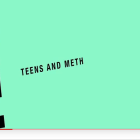

Ben Chambers On What Juvenile Courts Should Know about Trauma and Delinquency
|
It's not a secret that many youth in juvenile court struggle with symptoms related to trauma, but it can be hard to remember in court, when faced with a defiant youth who's been repeatedly delinquent. So it's great to see a new publication from the National Council of Juvenile and Family Court Judges, 10 Things Every Juvenile Court Judge Should Know about Trauma and Delinquency.(Even though it seems to be aimed only at judges, it's useful for all staff who work with or in juvenile court.)
Scoff at the idea that trauma could be related to breaking the law? Here's a telling observation from the publication:
It does not go unnoticed by youth when their safety and well-being is not addressed but their delinquent behavior is. These kinds of paradoxes and frustrations can increase the likelihood that youth will respond defiantly and with hostility to court and other professionals who are in positions of authority. System professionals would benefit from recognizing that imposing only negative or punitive consequences will likely do little to change the youth’s patterns of aggression, rule breaking, and risky behaviors because such a response does not address the impact of traumatic stress on the child.

Helping Kids with Substance Abuse Grant
|
The Substance Abuse and Mental Health Services Administration’s Center for Mental Health Services is offering grants for Expansion of the Comprehensive Community Mental Health Services for Children and their Families. The grants' purpose is development of a comprehensive strategic plan to improve and expand services provided by systems of care for kids. These systems will address substance abuse problems, serious emotional disturbances and families undergoing this pressure. The aim of this grant is to help reduce suicide attempts, enhance contact with police and to improve school attendance. The deadline for this grant is June 2, 2011.
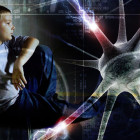
Conference Explores Adolescent Brain Development
|
PHOENIX -- Science and legal experts from across the nation gathered at a Phoenix courtroom on Thursday to present research on neuroscience that could help decide future juvenile-committed crimes on Thursday. Arizona State University’s school of law hosted the “Adolescent Brains and Juvenile Justice” national conference, a biennial event, which brought an array of people together from policy-makers to judges. The aim of the event, held at the Sandra Day O’Connor U.S. Courthouse, was to explore research into adolescents’ brain development and the constitutionality of trying minors as adults. “This is an opportunity to explore the facts,” said Andrew Askland, a director at the law school. Currently, states such as Georgia can try minors as adults in serious crimes.
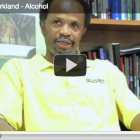
Kirk’s Journey From Malt Liquor to a Loving Place
|
Meet Vernon Kirkland. But you can call him Kirk, everyone else at the Eagle’s Nest Ministry on Edgewood Avenue in downtown Atlanta does. On any given day, say about dark-thirty in the morning, you can find him running around the kitchen, helping to serve dozens of homeless who come by for a hot breakfast. He is, says Larry Arnold, the long-time pastor of Eagle’s Nest, a magical and positive force for the organization’s outreach programs in the area as well as an inspiration to so many who struggle with addiction on the streets of downtown Atlanta. That’s because Kirk hasn’t always been this steady.
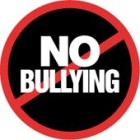
Florida Bully Law Falls Short
|
A Florida law praised nationally as a landmark step against bullying is falling far short in its most basic of goals: To get schools to report bullying incidents. The Jeffrey Johnston Stand Up for All Students Act does a lot more than simply encourage schools to report bullying. It also requires local school districts to adopt policies against both in-person bullying and cyber-bullying, or else to risk the loss of state funding. But data from the Florida Department of Education shows that schools recorded barely 6,000 incidents of bullying last year — far fewer than experts say are likely to have occurred among the state’s 2.6 million students. That’s a tiny fraction of the number of incidents likely to have occurred.

Phil Goldsmith on Violence in Philadelphia’s Schools
|
ABOUT A MONTH after I became the interim chief executive officer of the School District of Philadelphia, in 2000, I was greeted with a damaging report by a subcommittee of the Pennsylvania House of Representatives detailing rampant violence in the city's schools. Violence is a serious problem that the district "attempts to downplay, if not conceal," the report asserted. Now, a decade later, the Philadelphia Inquirer has placed a spotlight on the district once again in an updated and detailed encore, a multipart series on school violence. Reports of violence in the city's schools aren't new now, nor were they a decade ago. Three decades ago, a 1980 Philadelphia Evening Bulletin article proclaimed "student beatings are up 24 percent in Philadelphia."
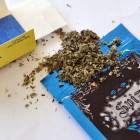
The Straight Dope on Fake Dope
|
In Jordan Cox’s view, it was a waste of money. The high, he said, was more like the head rush he got taking his first drag off a cigarette in middle school; not at all like smoking weed. Cox was smoking something his friends called “spice,” a mixture of dried herbs sprayed with a synthetic cannabinoid that mimicked the effects of THC, the psychoactive ingredient in marijuana. At least, it was supposed to feel like smoking pot. “It was fake and you could tell,” said Cox, a 22-year-old Georgia college student.

When does a Human Rights Commission oppose cyber-bullying education?
|
Is the rush by politicians to get tough on cyber-bullying becoming an overly crowded bandwagon? That could be the case in New York City, where the city’s Human Rights Commission came out yesterday against a City Council member’s proposal to mandate education on cyber-bullying. "To be effective in reaching the targets of our educational programs, the commission must be able to adapt quickly," a Human Rights Commission official was quoted as telling a City Council hearing. "That flexibility would be hampered by this proposed legislation." It’s not that the commission opposes efforts to educate kids about the problem, its chairwoman said in a statement.

Benjamin Chambers On Positive Youth Justice
|
We often assume that teens land in the juvenile justice system because they're "villains" or victims (of trauma, circumstance, or a behavioral health issue like substance abuse). But what if we used a different lens? What if we assumed that teens commit crimes to meet needs typical of of all adolescents? After all, during this phase of development, teens want excitement, power, status, and a sense of belonging. (Plus, they're not strong on empathy, paving the way for criminal behavior.)
Using this lens instead of a villain/victim lens means changing what we do. It means working with communities to help teens meet their developmental needs in more positive, constructive ways, so they can live crime-free lives.